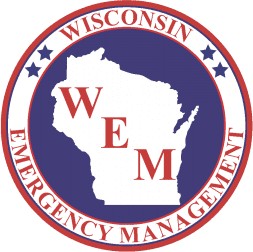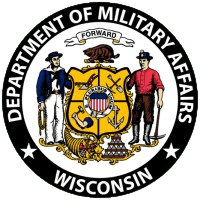Businesses and Private Non-Profits (PNPs)
Program to provide low-interest disaster loans to businesses of all sizes, private non-profit organizations, homeowners, and renters. SBA disaster loans can be used to repair or replace some eligible items damaged or destroyed in a declared disaster.
Agriculture
Government and Communities
VOAD is a forum where organizations share knowledge and resources throughout the disaster cycle to help disaster survivors and their communities.
This a place to learn more about volunteering and assistance opportunities
Contact: Wisconsin VOAD Chair, Keith Lang email: klang@lsswis.org
Environmental and Historic Preservation (EHP)
The most important message we can give is to anticipate environmental and historic preservation (EHP) issues at the outset of a disaster. The earlier these issues are anticipated, the easier it may be to navigate through the review process. Discuss these issues or questions with FEMA and Wisconsin Emergency Management staff as soon as possible. For more information regarding specific environmental or historic concerns:
- FEMA Environmental & Historic Preservation
FEMA can provide technical assistance on EHP regulations and issues.
- Wisconsin Department of Natural Resources (DNR)
The DNR works to protect and enhance the environment in Wisconsin, encouraging early planning and consultation. This includes air permitting, air quality, endangered species, recycling/composting, water resources, and environmental impact.
- State Historic Preservation Officer (SHPO) Review
The SHPO helps determine if historic preservation laws apply to your project.
- U.S. Army Corps of Engineers (USACE)
In certain types of waterway projects, the USACE must be consulted for permitting.
- U.S. Fish & Wildlife Service (FWS) – Upper Midwest
Federal grants are required to minimize threats to endangered species. This site helps perform a Section 7 Consultation online.
- FEMA Map Service CenterThe FEMA Map Service Center is the official source for flood hazard mapping for the National Flood Insurance Program. This site helps verify if your project is located in a floodplain or to access a flood map.
Federal Emergency Management Agency (FEMA) Individual Assistance
For the State of Wisconsin to qualify an Individual Assistance Declaration, FEMA inspectors would look to confirm 582 (according to CFR 44) homes major damaged or destroyed. In a wind event, major damage to manufactured homes is described as the residence has been displaced from the foundation, block or piers and other structural components have been damaged. Destroyed is the structure is a total loss; frame is bent, twisted or otherwise compromised; missing the roof covering or the structural ribbing has collapsed for the majority of the roof system. For conventionally built homes, major damage is considered partial failure to structural elements of the roof, walls, or foundation. Destroyed is complete failure of two or more major structural components (walls, foundation, or roof) or only foundation remains. To request a federal disaster declaration, the Governor must request FEMA to come to the impacted county or counties and conduct a damage assessment of damaged homes and businesses. A FEMA inspector will determine if the damage is eligible under the federal program. The information gathered from a damage assessment will be provided to the Governor who will then request the President to approve a federal disaster declaration. In an Individual Assistance Declaration the Individual Assistance program provides assistance to individuals and households, which may include:
- Individual and Household Program – FEMA’s Individuals and Households Program (IHP) provides financial and/or direct assistance to eligible applicants. Parts of the program include:
- Crisis Counseling – Assists individuals and communities in recovering from the effects of natural and human-caused disaster through the provision of community-based outreach and psycho-educational services.
- Disaster Case Management – A time-limited process that involves a partnership between a case manager and a disaster survivor to develop and carry out a Disaster Recovery Plan.
- Disaster Unemployment Assistance –Purpose is to provide unemployment benefits and reemployment services to individuals who have become unemployed as a result of a Presidential disaster declaration and who are not eligible for regular State Unemployment Insurance.
- Disaster Legal Services – This service is provided for survivors of presidentially declared major disasters only. Disaster legal advice is limited to cases that will not produce a fee.
- Disaster Supplemental Nutrition Assistance Program (D-SNAP) – Through D-SNAP, USDA Food and Nutrition Service (FNS) is able to quickly offer short-term food assistance benefits to families suffering in the wake of a disaster.

